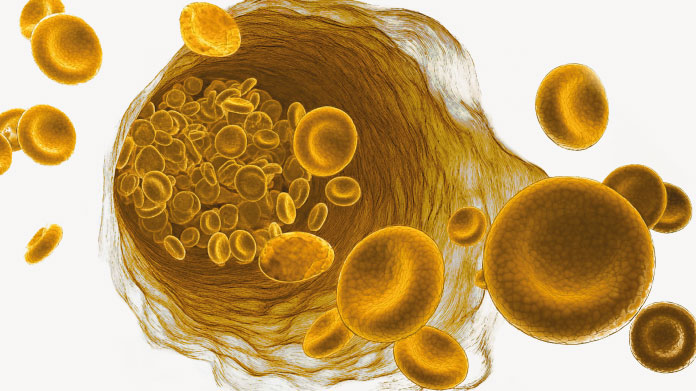The Cretan or Mediterranean diet: principles and benefits
Research has shown the Mediterranean diet to be particularly good for our health. Discover the simple principles and multiple benefits of this traditional and healthy way of eating.

The Mediterranean diet, a truly healthy way of eating
The Cretan or Mediterranean diet, has been the subject of scientific research for a number of years. Back in the Fifties, an American scientist called Ancel Keys documented how the good health enjoyed by Mediterranean populations was linked to their diet. It seems that people in these countries, especially Greece, enjoy better health – and consequently a longer life expectancy - as a result of their lifestyle.
Central to this lifestyle is a particularly well-balanced diet with an abundance of local produce. Such is the quality, variety and healthy nature of the Mediterranean diet that it was even included in UNESCO’s Intangible Cultural Heritage of Humanity list.
The Mediterranean diet in practice: an abundance of fibre, antioxidants, vitamins …
The Mediterranean diet is based on principles that are luckily quite easy to follow. Above all, it’s about eating mouth-watering dishes that contain a wide range of healthy foods, high in fibre, antioxidants, essential fatty acids and vitamins.
Foods to focus on
- fruits and vegetables: at every meal, raw or lightly-cooked (steamed, for example) ;
- garlic, onion, herbs, spices: at every meal;
- olive and rapeseed oil: at every meal;
- whole grains: every day;
- nuts (hazelnuts, almonds, pistachios…): every day;
- seeds (flax, pumpkin, sunflower, pine nuts…): every day;
- sheep’s milk yogurt and cheese: up to twice a day;
- oily and white fish, shellfish and seafood: up to three times a week;
- pulses (chickpeas, beans, lentils …): two to three times a week.
The traditional Mediterranean diet also includes a daily glass of red wine. Remember though that excessive alcohol intake is damaging to health – it should always be consumed in moderation.
Foods to avoid
- red meat;
- sugary foods and drinks;
- cow’s milk products;
- ready meals;
- strong alcohol, beer, white wine ...
Some useful supplements to complement your Mediterranean diet
Are you looking for dietary supplements to boost the effects of your eating plan?
In terms of fibre, choose a prebiotic composed of soluble fibre, such as Organic Acacia. You can also increase your antioxidant intake with a formulation high in catechins, polyphenols and glutathione (for example, AntiOxidant Synergy).
For essential fatty acids, we’d recommend stocking up on fish oil omega-3s with the formulation Super Omega 3. And as for vitamins, there’s no better solution than a course of multivitamins (for example, Daily 3®).
The benefits of the Mediterranean diet: good for the heart, nervous system, and general health ...
A clear role in cardiovascular health
This is the most widely-documented benefit, and with good cause! High in the unsaturated fatty acids omega 3, 6 and 9, , this diet helps control the body’s lipid levels, balancing ‘good’ and ‘bad’ cholesterol, and reducing triglycerides… (1)
One study showed it could reduce the risk of developing type 2 diabetes by 35% (2). It may also have a positive effect on blood pressure (3).
That the Mediterranean diet plays a role in protecting the cardiovascular system is unquestionable: studies show it clearly reduces the risk of developing cardiovascular disease (4). These benefits are also useful for losing weight naturally.
How this diet helps fight ageing
In addition to its heart-health benefits, the Mediterranean diet may also reduce the unwelcome effects of ageing, with research highlighting in particular the protective role it plays in the nervous system. The targets here are neurodegenerative diseases such as Alzheimer’s and Parkinson’s.
Positive effects on age-related cognitive impairment are also associated with the Mediterranean diet (5). A decline in mental faculties can be incapacitating and is the first step on the road to more serious neurological conditions.
And what are the links between this diet and cancer prevention?
Many scientists believe the Mediterranean diet to be a valuable cancer prevention tool, particularly for colorectal, prostate, oral and throat cancer.
It seems that following this diet carefully over the long term reduces the risk of cancer and associated mortality (6). The fibre, antioxidants and essential fatty acids abundant in typical Mediterranean foods are key among the constituents responsible for these benefits.
A potential ally in fighting depression
Several components of the Mediterranean diet (particularly its antioxidants) may also exert positive effects on mental health. Some studies suggest that it not only plays a preventive role in depression (7) but may relieve its symptoms too (8).
Does it play a positive role in fertility?
The Mediterranean diet also appears to promote good reproductive health in both men and women. Superior sperm quality (9) and improvements in the menstrual cycle have been observed in those following such a diet (10).
Similar observations have been made in the area of medically-assisted reproduction: it seems the Mediterranean diet may increase the chances of IVF success (11).
Who in particular should adopt the Mediterranean or Cretan way of eating?
The simple answer is everyone! With a diet as healthy and balanced as this, any risk of deficiency is negligible.
What’s more, this isn’t really a ‘diet’ as such, because it’s easy to follow and the relevant foods are readily available. There are few forbidden foods, and it can be followed over the long-term, even by ‘foodies’.
Along with consuming the omega-3s, antioxidants and vitamins offered by this diet, it’s important to remember to take regular exercise too. And at the same time, why not benefit from the convivial nature of Mediterranean eating by making more of your meals communal, relaxed affairs with family and friends, and reducing your stress levels as much as possible … it’s a whole philosophy for life that’s excellent for health!
Note: If you want to enjoy all the benefits of the Mediterranean, a sun-soaked region if ever there was one, then focus more on life in the great outdoors and the benefits of natural light. As extra ‘insurance’ against deficiency, you could also supplement with vitamin D, the famous ‘sunshine vitamin’ (try, for example, Vitamin D3 5000 IU).
References
- Willett, Walter C. 2006. “The Mediterranean Diet: Science and Practice.” Public Health Nutrition 9 (1a): 105–10.
- Martínez-González MA, de la Fuente-Arrillaga C, Nunez-Cordoba JM, et al. Adherence to Mediterranean diet and risk of developing diabetes: prospective cohort study. BMJ. 2008;336(7657):1348-1351.
- Christina-Maria Kastorini, Haralampos J. Milionis, Katherine Esposito, Dario Giugliano, John A. Goudevenos, Demosthenes B. Panagiotakos. The Effect of Mediterranean Diet on Metabolic Syndrome and its Components J Am Coll Cardiol. 2011 Mar, 57 (11) 1299-1313.
- Martínez-González MA, García-López M, Bes-Rastrollo M, et al. Mediterranean diet and the incidence of cardiovascular disease: a Spanish cohort. Nutr Metab Cardiovasc Dis. 2011;21(4):237-244.
- Romagnolo DF, Selmin OI. Mediterranean Diet and Prevention of Chronic Diseases. Nutr Today. 2017;52(5):208-222.
- Schwingshackl L, Hoffmann G. Adherence to Mediterranean diet and risk of cancer: a systematic review and meta-analysis of observational studies. Int J Cancer. 2014;135(8):1884-1897.
- Lassale, C., Batty, G.D., Baghdadli, A. et al. Healthy dietary indices and risk of depressive outcomes: a systematic review and meta-analysis of observational studies. Mol Psychiatry 24, 965–986 (2019).
- Francis HM, Stevenson RJ, Chambers JR, Gupta D, Newey B, Lim CK (2019) A brief diet intervention can reduce symptoms of depression in young adults – A randomised controlled trial. PLoS ONE 14(10).
- Salas-Huetos A, Bulló M, Salas-Salvadó J. Dietary patterns, foods and nutrients in male fertility parameters and fecundability: a systematic review of observational studies. Hum Reprod Update. 2017;23(4):371-389.
- Fontana R, Della Torre S. The Deep Correlation between Energy Metabolism and Reproduction: A View on the Effects of Nutrition for Women Fertility. Nutrients. 2016;8(2):87. Published 2016 Feb 11.
- Dimitrios Karayiannis, Meropi D Kontogianni, Christina Mendorou, Minas Mastrominas, Nikos Yiannakouris, Adherence to the Mediterranean diet and IVF success rate among non-obese women attempting fertility, Human Reproduction, Volume 33, Issue 3, March 2018, Pages 494–502.
Keywords
61 Days
Very happy with the order and the…
Very happy with the order and the prompt team's response to an identified issue with my order.
KUQI Fatmir
68 Days
15 + years as a customer
I have been using their products for over 15 years as I find both the quality and pricing excellent.
Del Chandler
70 Days
Good quick delivery
Good quick delivery
Timothy O Shea
71 Days
Good service
Good communication following order. Product came within the time frame and was well packaged. The only confusing thing I found was in checking out. For some reason it is not clear how to do so and the current system should be improved.
Joe O Leary
80 Days
Simple and fast.
Simple and fast.
Nina
80 Days
Great product was definitely what is…
Great product was definitely what is says and arrived on without issue
customer
87 Days
I love reading those product facts on…
I love reading those product facts on Supersmart.com. Effective health products making permanent changes to my blood-work results and testes. However, I also have to order capsules from other websites.
NORDGULEN Olav
89 Days
Great products
Great products Very easy to choose, to order… and to get at home
Federica mastrojanni
92 Days
Service rapide et bons produits
Service rapide et bons produits
customer
93 Days
Good products and fast delivery
Good products and fast delivery
Trusted
98 Days
Does what it says on the can
I believe in this product Made to highest standard The ordering process is straightforward Delivery time prompt Excellent product, excellent service Happy customer ❤️
Sheba Kelleher
103 Days
Excellents produits
Excellents produits. Rien à dire si ce n'est qu'ils sont très chèrs.
MJS_France
105 Days
Very good supplement
Very good supplement
Glaveash
106 Days
Supersmart supplements are really…effective
Supersmart supplements are really effective and have helped me and family members and friends to improve their health including some of us with severe health problems including some with no existing medical treatment.
Anne Georget
107 Days
SuperBig Supersmart
SuperBig Supersmart
Pierre



